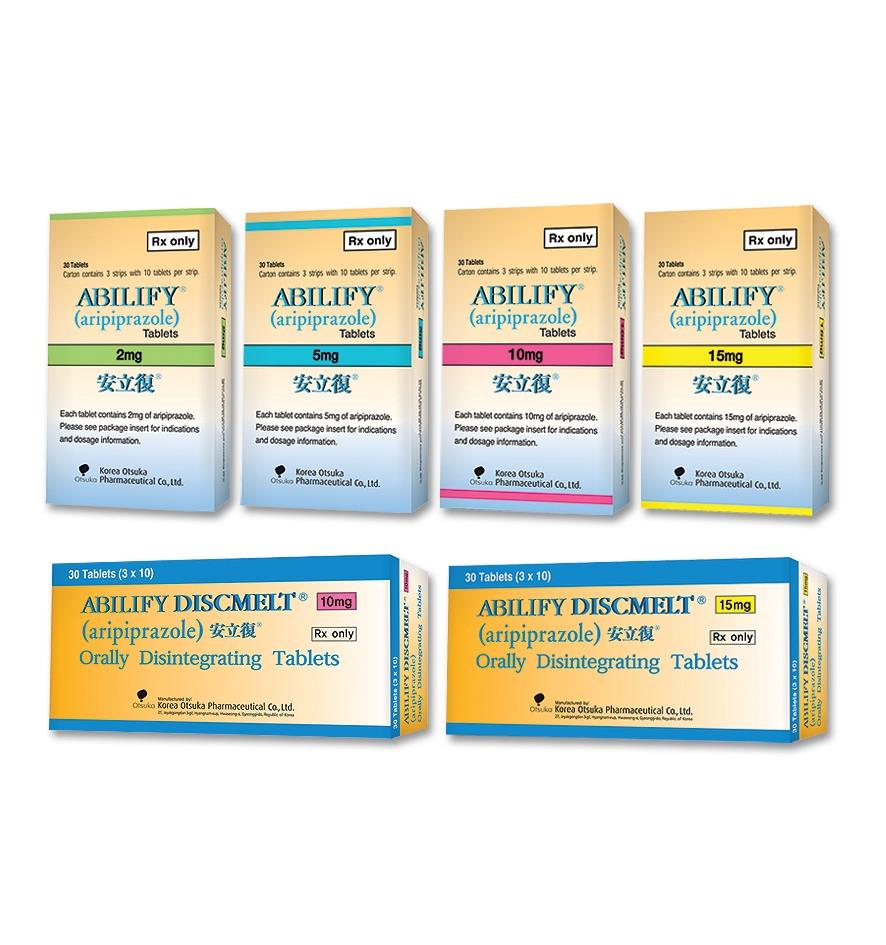
- What Is Abilify?
- Brief History of Abilify
- How to Use Abilify?
- What Should Be Done If an Overdose Occurs?
- To Whom Is It Contraindicated?
- Interactions with Other Medications
- Available Forms
- Famous Abilify Brands
- Why Do People Use It In Sports?
- Websites and Articles to Delve into the Benefits of Abilify
- Disclaimer
What Is Abilify?
Abilify, generic name aripiprazole, is a medication primarily prescribed for the treatment of mental health disorders, particularly schizophrenia, bipolar disorder, major depressive disorder (as an adjunct to antidepressants), and irritability associated with autism spectrum disorders. As an atypical antipsychotic, Abilify works by modulating the activity of neurotransmitters, particularly dopamine and serotonin, in the brain.
Unlike traditional antipsychotics, Abilify is classified as a partial dopamine agonist, meaning it can both stimulate and inhibit dopamine receptors as needed to maintain balance. This unique mechanism is believed to contribute to its efficacy with reduced side effects compared to some other antipsychotic medications.
Abilify is available in various forms, including oral tablets, orally disintegrating tablets, and an injectable solution for extended-release purposes. Common side effects may include weight gain, drowsiness, and extrapyramidal symptoms like tremors. It is essential for individuals prescribed Abilify to undergo regular medical monitoring and communicate any concerns or side effects to their healthcare providers to ensure optimal treatment outcomes.
Brief History of Abilify
Abilify, the brand name for aripiprazole, has a relatively recent history compared to some other medications. Here is a brief overview:
- Development and Approval:
- Aripiprazole was developed by Otsuka Pharmaceutical Co., Ltd., in Japan.
- Abilify received its first approval from the U.S. Food and Drug Administration (FDA) in November 2002 for the treatment of schizophrenia.
- Subsequent approvals were granted for bipolar disorder and major depressive disorder as an adjunctive treatment to antidepressants.
- Mechanism of Action:
- Abilify is classified as an atypical antipsychotic and is distinct from traditional antipsychotics in its partial agonist activity at dopamine receptors. It both stimulates and inhibits dopamine receptors, aiming to achieve a balance in neurotransmitter activity.
- Expanded Uses:
- Over the years, Abilify’s approval has expanded to include various psychiatric disorders. This includes its use as an adjunctive treatment for major depressive disorder and as a treatment for irritability associated with autism spectrum disorders.
- Forms and Administration:
- Abilify is available in different formulations, including oral tablets, orally disintegrating tablets, and an injectable solution.
- The availability of different forms provides flexibility in treatment options based on individual patient needs.
- Global Impact:
- Abilify has become one of the most widely prescribed medications globally for various psychiatric conditions.
- Its unique mechanism of action and perceived lower risk of certain side effects have contributed to its popularity in clinical practice.
- Generic Availability:
- Aripiprazole went off-patent, and generic versions became available, providing more cost-effective options for patients.
Abilify’s development and approval marked a significant advancement in the pharmacological treatment of mental health disorders, offering clinicians and patients a novel approach to managing conditions like schizophrenia, bipolar disorder, and depression. It continues to play a crucial role in psychiatric care.
| Year | Event |
|---|---|
| 2002 | Abilify (aripiprazole) receives FDA approval for the treatment of schizophrenia. |
| 2004 | FDA approves Abilify for the treatment of bipolar disorder. |
| 2007 | Approval granted for Abilify as an adjunctive treatment for major depressive disorder. |
| 2009 | Abilify approved for the treatment of irritability associated with autism spectrum disorders in pediatric patients. |
| 2015 | Generic versions of aripiprazole become available as the medication goes off-patent. |
| Present | Abilify is widely prescribed globally and continues to be an important medication for various psychiatric conditions. |
This table provides a concise timeline of key events in the history of Abilify from its initial approval to its current status in clinical practice.
How to Use Abilify?
The use of Abilify (aripiprazole) should be carefully managed under the guidance of a qualified healthcare professional. Below are general guidelines on how Abilify is commonly used, but it is crucial to follow the specific instructions provided by the prescribing doctor:
- Prescription Only:
- Abilify is available only with a prescription from a licensed healthcare provider. Do not use Abilify without proper medical guidance.
- Dosage:
- The dosage of Abilify is determined by the healthcare provider based on the individual’s condition, response to treatment, and other factors. It is usually started at a low dose and may be adjusted as needed.
- Formulations:
- Abilify comes in various formulations, including oral tablets, orally disintegrating tablets, and an injectable solution. The specific form prescribed will depend on the individual’s needs and the healthcare provider’s recommendation.
- Consistent Administration:
- Abilify is often taken once daily, either with or without food. It is important to take it consistently at the same time each day.
- Follow Doctor’s Instructions:
- Always follow the specific instructions given by the healthcare provider regarding the dosage, duration of treatment, and any special considerations.
- Do Not Adjust Dose Without Guidance:
- Do not adjust the dosage or stop taking Abilify without consulting the healthcare provider. Abruptly discontinuing the medication may lead to withdrawal symptoms or a return of symptoms.
- Regular Monitoring:
- Regular follow-up appointments with the healthcare provider are essential. During these visits, the doctor may monitor the individual’s response to the medication, adjust the dosage if necessary, and assess for any potential side effects.
- Communication:
- Report any side effects or concerns to the healthcare provider promptly. It is crucial to maintain open communication to ensure optimal treatment.
- Avoid Alcohol:
- Limit or avoid alcohol while taking Abilify, as it can increase the risk of side effects.
- Missed Dose:
- If a dose is missed, take it as soon as remembered. However, if it is close to the time of the next scheduled dose, skip the missed dose and resume the regular dosing schedule. Do not double the dose to make up for a missed one.
It is important for individuals taking Abilify to be actively involved in their treatment plan, adhere to the prescribed regimen, and communicate any concerns with their healthcare provider. Always consult with a healthcare professional for personalized advice and guidance.
What Should Be Done If an Overdose Occurs?
If an overdose of Abilify (aripiprazole) is suspected, it is crucial to seek immediate medical attention. Overdosing on antipsychotic medications can have serious consequences, and prompt medical intervention is necessary. Here are some general steps to take if an overdose is suspected:
- Call Emergency Services:
- Dial emergency services immediately. In the United States, this would typically be 911. Provide all relevant information, including the name of the medication (Abilify), the strength of the dosage, and any symptoms the person is experiencing.
- Do Not Delay:
- Time is critical in cases of overdose. Do not wait for symptoms to worsen before seeking help.
- Stay Calm:
- While waiting for emergency services, try to keep the person calm. Encourage them to remain still and avoid any unnecessary physical activity.
- Provide Information:
- If possible, provide emergency responders with information about the person’s medical history, including any pre-existing conditions, medications they are taking, and the amount of Abilify that may have been ingested.
- Do Not Attempt Self-Treatment:
- Do not attempt to treat the overdose at home with home remedies or by inducing vomiting unless explicitly instructed to do so by emergency services. Improper interventions can worsen the situation.
Overdose symptoms may include confusion, drowsiness, seizures, increased heart rate, low blood pressure, and in severe cases, coma. It is important not to ignore any signs of overdose, as prompt medical attention can significantly improve the outcome.
Individual responses to medication overdoses can vary, and the severity of symptoms depends on factors such as the amount of the drug ingested and the individual’s health. Always follow the advice of emergency medical professionals and healthcare providers in cases of suspected overdose.
To Whom Is It Contraindicated?
Abilify (aripiprazole) is contraindicated, meaning it is not recommended, in certain individuals due to potential health risks and interactions. Contraindications may vary based on individual health conditions, medications, and other factors. It is crucial to consult with a healthcare professional before using Abilify. Some common contraindications include:
- Allergic Reactions:
- Individuals with a known hypersensitivity or allergic reaction to aripiprazole or any other component of Abilify should avoid its use.
- Severe Cardiovascular Issues:
- Abilify may increase the risk of cardiovascular events, so it is generally contraindicated in individuals with a history of heart problems, including recent heart attacks or unstable heart conditions.
- Elderly Individuals with Dementia:
- Abilify is associated with an increased risk of death in elderly individuals with dementia-related psychosis. It is typically contraindicated in this population.
- Neuroleptic Malignant Syndrome (NMS) History:
- Individuals with a history of neuroleptic malignant syndrome, a potentially life-threatening reaction to antipsychotic medications, may be advised against using Abilify.
- Extrapyramidal Symptoms (EPS) History:
- People with a history of EPS, which includes symptoms such as tremors, stiffness, and involuntary movements, may experience an exacerbation of these symptoms with Abilify use.
- Known Metabolic Disorders:
- Abilify may contribute to changes in metabolism, including weight gain and disturbances in blood sugar levels. Individuals with known metabolic disorders may be at increased risk.
- Seizure Disorders:
- Abilify may lower the seizure threshold, and its use should be approached with caution in individuals with a history of seizures.
- Pregnancy and Breastfeeding:
- The use of Abilify during pregnancy and breastfeeding requires careful consideration. Healthcare providers weigh the potential risks and benefits in such situations.
- Interaction with Certain Medications:
- Abilify may interact with other medications, including certain antidepressants and antipsychotics. Inform the healthcare provider about all medications, supplements, and substances being taken.
It is crucial to provide a comprehensive medical history and a list of all medications to the healthcare provider before starting Abilify. Only a qualified healthcare professional can assess the individual’s specific situation and determine whether Abilify is appropriate. Never self-prescribe or take medications without proper medical guidance.
Interactions with Other Medications
Abilify (aripiprazole) can interact with various medications, and it is essential to inform your healthcare provider about all the medications, supplements, and substances you are taking. Drug interactions can impact the effectiveness and safety of medications. Here are some notable interactions with Abilify:
- Central Nervous System Depressants:
- Combining Abilify with other central nervous system depressants, such as alcohol, benzodiazepines, or opioids, may increase sedation and the risk of respiratory depression.
- Antidepressants:
- Certain antidepressants, particularly selective serotonin reuptake inhibitors (SSRIs) and serotonin-norepinephrine reuptake inhibitors (SNRIs), may increase the risk of serotonin syndrome when used concurrently with Abilify. Serotonin syndrome is a potentially life-threatening condition characterized by symptoms such as confusion, hallucinations, seizure, extreme changes in blood pressure, increased heart rate, fever, excessive sweating, shivering or shaking, blurred vision, muscle spasm or stiffness, tremor, incoordination, stomach cramp, nausea, vomiting, and diarrhea.
- Antipsychotics:
- Combining Abilify with other antipsychotic medications may increase the risk of side effects and should be done cautiously under the guidance of a healthcare provider.
- Antihypertensive Medications:
- Abilify may cause orthostatic hypotension (a drop in blood pressure upon standing). Combining it with antihypertensive medications may increase the risk of low blood pressure.
- Anticonvulsants:
- Some anticonvulsant medications may affect the metabolism of Abilify, potentially altering its blood levels.
- Drugs that Prolong the QT Interval:
- Abilify may prolong the QT interval, and combining it with other medications that also have this effect (e.g., certain antibiotics, antifungals, or antiarrhythmics) may increase the risk of serious arrhythmias.
- CYP2D6 Inhibitors and Inducers:
- Abilify is metabolized by the CYP2D6 enzyme. Medications that inhibit or induce this enzyme may affect Abilify’s blood levels.
- Dopamine Agonists:
- Combining Abilify with other dopamine agonists may increase the risk of side effects and should be done with caution.
This list is not exhaustive, and individual responses to medication combinations can vary. Always consult your healthcare provider before starting or stopping any medications and inform them of all substances you are currently taking to ensure safe and effective treatment.
Available Forms
Abilify (aripiprazole) is available in various forms to accommodate different patient needs and preferences. The main formulations of Abilify include:
- Oral Tablets:
- Abilify is commonly available in oral tablet form, which is swallowed with water.
- Tablets come in different strengths, allowing for individualized dosing based on the prescribed regimen.
- Orally Disintegrating Tablets (ODT):
- Orally disintegrating tablets are designed to dissolve rapidly in the mouth without the need for water.
- This form may be suitable for individuals who have difficulty swallowing tablets or prefer a more convenient administration method.
- Oral Solution:
- Abilify is available as an oral solution, providing a liquid form of the medication.
- The oral solution may be preferred by individuals who have difficulty swallowing tablets or need a more flexible dosing option.
- Injectable Extended-Release Suspension:
- Abilify Maintena is an extended-release injectable suspension administered by a healthcare professional.
- It is typically given as a monthly injection and is used for the maintenance treatment of schizophrenia and bipolar I disorder.
- Oral Disintegrating Tablets for Pediatric Use:
- Abilify MyCite is an orally disintegrating tablet with an embedded sensor. This technology allows for tracking medication adherence using a digital system.
- It is indicated for the treatment of schizophrenia, acute treatment of manic and mixed episodes associated with bipolar I disorder, and as an adjunctive treatment for major depressive disorder.
It’s important to note that the availability of specific formulations may vary by region and country. Additionally, the choice of formulation is often influenced by the individual patient’s needs, preferences, and the prescribing healthcare provider’s recommendations. Patients should follow the prescribed form and dosage instructions provided by their healthcare professional.
Famous Abilify Brands
Abilify is a brand name for the medication aripiprazole. While Abilify is a well-known brand, there are also generic versions available under the name aripiprazole. The availability of generic versions allows for cost-effective alternatives. Here are some common brand names associated with aripiprazole:
- Abilify:
- Abilify is the original brand name for aripiprazole. It is available in various formulations, including oral tablets, orally disintegrating tablets, and oral solution.
- Abilify Maintena:
- Abilify Maintena is an extended-release injectable suspension of aripiprazole. It is administered by a healthcare professional and is used for the maintenance treatment of schizophrenia and bipolar I disorder.
- Abilify MyCite:
- Abilify MyCite is a specific formulation of aripiprazole that includes a digital tracking system. It consists of orally disintegrating tablets with an embedded sensor to monitor medication adherence. It is indicated for the treatment of certain psychiatric conditions.
It’s important to note that while Abilify is a well-recognized brand, generic versions of aripiprazole are also available under different names. Generic medications contain the same active ingredients as their brand-name counterparts and are often marketed under the names of the active ingredients. Always follow the guidance of healthcare professionals and use the prescribed brand or generic version of the medication.
Why Do People Use It In Sports?
The use of medications like Abilify (aripiprazole) in sports without a legitimate medical need is considered unethical and is often prohibited by anti-doping regulations. Abilify is an antipsychotic medication primarily prescribed for mental health conditions such as schizophrenia, bipolar disorder, and major depressive disorder. Its use in sports is not intended, and there is no evidence to support its performance-enhancing effects in athletes.
Misuse of medications in sports, including antipsychotics, can have serious consequences. Athletes are subject to anti-doping rules and regulations set by organizations such as the World Anti-Doping Agency (WADA) and various sports governing bodies. These regulations prohibit the use of certain substances without a valid medical justification.
Using medications like Abilify in sports without a legitimate medical need may be driven by misconceptions or a desire to gain a competitive advantage. However, it is crucial for athletes to compete on a level playing field based on their natural abilities and training rather than relying on substances that are not intended for performance enhancement.
Athletes should always consult with healthcare professionals and adhere to anti-doping regulations to ensure their health, safety, and compliance with the rules of their respective sports organizations. Misuse of medications can lead to serious consequences, including disqualification, suspension, and damage to an athlete’s reputation.
Websites and Articles to Delve into the Benefits of Abilify
Here is information on Abilify from the reputable websites:
- WebMD – Abilify Oral:
- Comprehensive details on Abilify, including uses, side effects, and precautions.
- Dosage information and how to use the medication.
- Drugs.com – Abilify:
- Information on Abilify, covering uses, side effects, and dosage.
- User reviews and ratings for the medication.
- Official Abilify Website – Abilify:
- The official website provides information on Abilify, including its uses, potential benefits, and resources for patients and healthcare professionals.
- Wikipedia – Aripiprazole:
- A comprehensive overview of aripiprazole, covering its chemical structure, mechanism of action, medical uses, and history.
- Cleveland Clinic – Aripiprazole Tablets:
- Information on aripiprazole tablets, including their uses, precautions, and how to take them.
- Drugwatch – Abilify:
- Information on Abilify, including uses, potential side effects, and legal issues related to the medication.
- Mayo Clinic – Aripiprazole Oral Route:
- Side effects information for aripiprazole, including common and rare side effects.
- Medical News Today – Abilify:
- Overview of Abilify, covering its uses, side effects, and potential interactions.
- RxList – Abilify Drug:
- Information on Abilify, including uses, side effects, and dosage.
- MedlinePlus – Aripiprazole:
- Information on aripiprazole, including its uses, precautions, and potential side effects.
- Mayo Clinic – Proper Use of Aripiprazole:
- Guidelines on the proper use of aripiprazole, including dosage instructions.
- Healthline – Abilify:
- Overview of Abilify, covering its uses, dosage, side effects, and precautions.
- GoodRx – Abilify Side Effects:
- Information on Abilify side effects, including common and serious reactions.
- Drugwatch – Abilify Side Effects:
- Detailed information on the side effects of Abilify, including potential risks and complications.
These sources collectively provide a comprehensive understanding of Abilify, its uses, potential side effects, and guidelines for proper use. Always consult with healthcare professionals for personalized advice and guidance.
Disclaimer
The information is solely provided for educational purposes. It is not intended to diagnose, treat, cure, or prevent any disease. Seek the advice of your physician or qualified healthcare provider with any questions you may have regarding a medical condition at all times. Never disregard professional medical advice because of something you have read or learned from this article.






